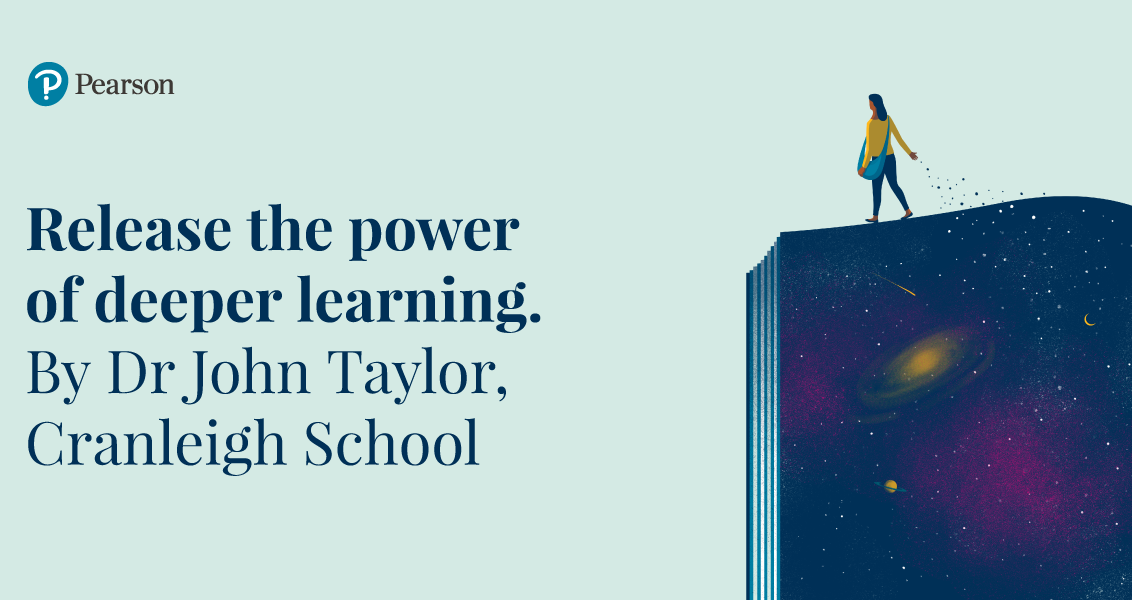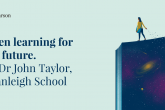
In my previous blog post, I explored the challenge of starting students on a journey that leads to deeper, more independent learning by means of open-ended questions. The point is a simple one: if we are going to equip students to be confident, independent thinkers, we are going to have to acclimatise them to the realm of open, challenging, controversial and ambiguous questions – the very questions that tend not to be asked in written examinations, which, as a rule, tend to favour responses that can be learned and matched to a mark scheme.
Once the journey towards deeper learning has begun, how can we continue it? How can we create learning environments in our classrooms, workshops, laboratories and studios that promote and reward character traits such as project management skills, curiosity and creative and persistent development of ideas and meta-cognitive reflection?
I suggest that when it comes to the challenge of forming deeper thinkers, students equipped with the skills to face the real-world challenges of finding a personal role in the modern workplace and adapting to the challenge of citizenship in a complex global world, it is project work, rather than examinations alone, that has the most to offer.
By ‘project’ I mean a personal response to an open question. The central question that guides the project process is crucial, and if the project is to be a rewarding, meaningful learning experience, it is going to have be a question that the student herself has helped to shape.
Project work is a personal thing. The enormous value of project work stems in large part from the fact that it genuinely puts the learner in the driving seat: the learner’s own interests, skills and experience play a crucial role in shaping both what they produce and the medium which they choose for the expression of their ideas. I have lost count of the number of extended projects that I have supervised that have turned out to be of really breath-takingly high quality. Yet really, I shouldn’t be surprised. Provide learners with the freedom to choose, put in place some scaffolding to provide structural support, and give them time to explore, experiment, investigate, create, go down a few blind alleys, think again, improve on a good idea until it becomes a great idea – unsurprisingly, when this is the way in which learning is allowed to happen, the results really do turn out to be of a very high quality indeed.
The Extended Project Qualification (EPQ), launched ten years ago and, now available both in the UK and internationally, has established itself as a valuable additional element alongside both A Levels and vocational qualifications.
Much of the value of the EPQ derives from the fact that it is underpinned by a rigorous yet flexible model for learning, a model which recognizes that genuine independent learning is the outcome of a carefully managed process in which students work with a mentor, initially being guided, but gradually over time, learning to take control of the process. Without a shadow of doubt, the most rewarding moment is when the student stands up to deliver their final presentation, and everyone in the room realises that they have become, within their chosen area, an expert, often with knowledge that their supervisor did not realise they had acquired.
Small wonder then that the EPQ is being increasingly welcomed by higher education institutions, who recognize it for what it is: a carefully crafted model for developing exactly the skillset that students will need if they are to go on to thrive in higher education, where the capacity for independent learning, critical reflection, self-management and the ability to persist at a major project over a sustained period will be vital to success.
EPQ has grown quietly to become a significant qualification in its own right. The way in which it has embedded itself and now can be seen to deliver on the independent learning agenda raises important questions. Should we push further in this direction? What would it mean, for example, to take the pedagogical model that underpins EPQ and apply it within the ‘mainstream’ curriculum? Should we be looking at what we do in our ‘ordinary’ lessons to see if we can help to strengthen and utilise the skills of deeper thinking and independent learning at all points in the learning journey?
If the value of EPQ lies as much in the model of learning which it embodies as in the quality of the outcomes that it leads to, then perhaps it is time for us to consider how we can transform all teaching and learning so that the formation of the qualities of rich, open, deeper learning are seen not just as a valuable addition but as the heart of all we do in our work with students.

